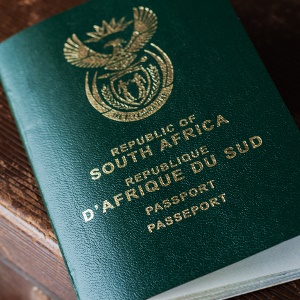
One of the prime roots of the current wave of nationalist and populist politics worldwide is the large number of immigrants from the Middle East, north Africa and south America seeking refuge in other countries.
South Africa has a larger number of refugees than most countries, yet there is the perception that it doesn’t have a major impact on our politics.
Xenophobia in especially our townships has become a common phenomenon, but since the bloody attacks on migrants in 2008 and again in 2015, all political parties and civil society have condemned it strongly.
It has since become indecent, and politically incorrect, to express concern over illegal immigrants. But it is a false correctness that doesn’t bother most ordinary citizens.
Two political leaders have recently dared to address this taboo topic: Johannesburg’s DA mayor, Herman Mashaba, and the trade union leader and founder of the new Socialist Revolutionary Workers Party, Zwelinzima Vavi. Mashaba has repeatedly stated that Johannesburg was getting “engulfed” by illegal migrants and that they should be treated as criminals. He was sharply rebuked by the ANC and the EFF.
Vavi put a photograph of Muslim men on Twitter last week, saying: "These are new shop owners going for midday prayers. Too many things going wrong? How did their goods come this far? How did they go through borders - were duties paid? What contributions to the tax man? What is the impact to local manufacturing sector? What’s happening to jobs?"
He was immediately criticised by activist Zackie Achmat, who tweeted: “Comrade @Zwelinzima1 this is one of the saddest moments for our country. Xenophobia and insinuating Islamophobia from a comrade with enormous power. Where is your anti-fascist international programme to build people’s solidarity on work, income, ecology, justice & peace?”
Vavi responded: "Comrade I can still no xenophobia [sic] or worse, Islamophobia, when pointing out that 25 years into democracy represented the wiping out of the spaza shops historically operated and owned by the Black/African owners or pointing out dumping of cheap goods that has destroyed manufacturing".
Mashaba was stung by the criticism and wrote in an opinion piece in the Sowetan: "A nasty trend has taken root in our country in which anyone who dares to speak out against certain issues is publicly humiliated and dismissed. For merely lamenting the state of illegal immigration I was labelled "xenophobic", "afriphobic" and "illiberal". Inevitably, the merits of the argument then go undebated."
Mashaba says he welcomes migrants from everywhere but insists that they be properly documented and issued with resident’s permits.
“It is time that we recognise there is space for a responsible discussion on the subject of illegal immigration. Our citizens want it; our police want it; our doctors and nurses want it. In a democracy, debating such matters is critical,” says Mashaba.
He has a point. I think all public figures, actually all of us, should desist from publicly saying things that could exacerbate xenophobia or prejudice against non-citizens. But we cannot kill the debate; it won’t go away if we don’t talk about it, because ordinary citizens do.
My instincts as a human being make me want to scrap man-made borders and welcome all those in need into our midst. I have very little sympathy for wealthy Western countries such as Britain, France, Germany or the US who go hysterical about the influx of migrants.
It is also true that much of the violence against foreign nationals in the townships is instigated by local shopkeepers who hate competition from especially entrepreneurs from Somalia, Pakistan and Bangladesh. The migrant-owned shops are often much cheaper than the local spaza shops and offer a greater range of products.
We need to add to the debate the fact that there are tens of thousands of immigrants in South Africa who are contributing hugely to our society: business people, academics, medical doctors, entrepreneurs, etc. I suspect that most, if not all, of them have work permits, though, and I doubt that many South Africans have a problem with them.
We need to address the problem of illegal migrants before it does start infecting our political culture more. The solution seems obvious: control the borders properly and document every person coming into the country. Make it easy and free for people to apply for asylum or work permits. Those who are denied these privileges will unfortunately have to go home.
But this is South Africa 2019. Too many public servants (and politicians) are corrupt, lazy or incompetent to implement such programmes efficiently. It should not stop us from having public debates about the issue and informing the public fully of all the facts, complete with giving migrants a voice. Perhaps the faith communities should also get involved.
Disclaimer: News24 encourages freedom of speech and the expression of diverse views. The views of columnists published on News24 are therefore their own and do not necessarily represent the views of News24.




 Publications
Publications
 Partners
Partners























